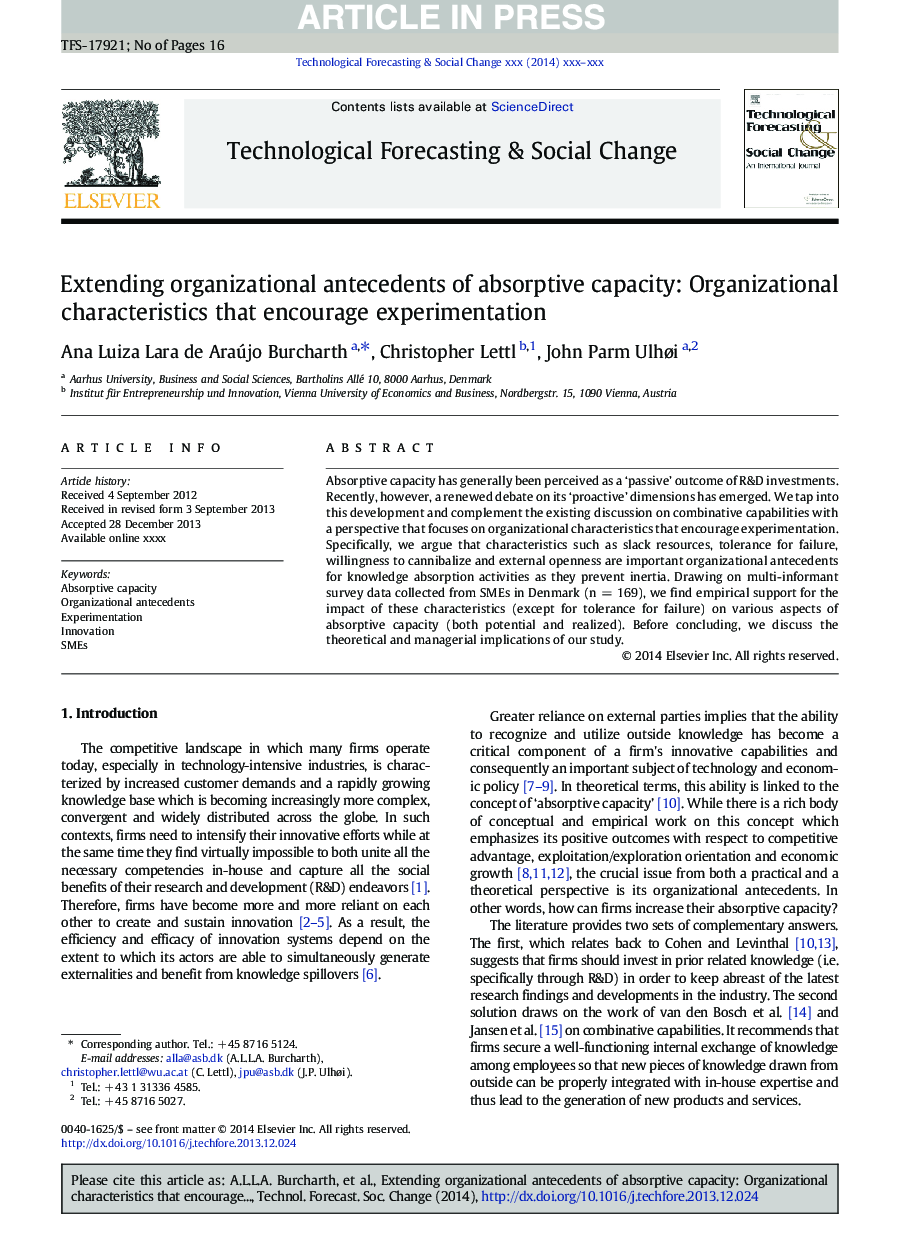| Article ID | Journal | Published Year | Pages | File Type |
|---|---|---|---|---|
| 10442540 | Technological Forecasting and Social Change | 2015 | 16 Pages |
Abstract
Absorptive capacity has generally been perceived as a 'passive' outcome of R&D investments. Recently, however, a renewed debate on its 'proactive' dimensions has emerged. We tap into this development and complement the existing discussion on combinative capabilities with a perspective that focuses on organizational characteristics that encourage experimentation. Specifically, we argue that characteristics such as slack resources, tolerance for failure, willingness to cannibalize and external openness are important organizational antecedents for knowledge absorption activities as they prevent inertia. Drawing on multi-informant survey data collected from SMEs in Denmark (n = 169), we find empirical support for the impact of these characteristics (except for tolerance for failure) on various aspects of absorptive capacity (both potential and realized). Before concluding, we discuss the theoretical and managerial implications of our study.
Related Topics
Social Sciences and Humanities
Business, Management and Accounting
Business and International Management
Authors
Ana Luiza Lara de Araújo Burcharth, Christopher Lettl, John Parm Ulhøi,
